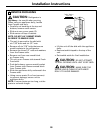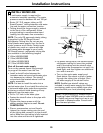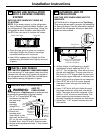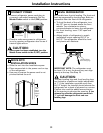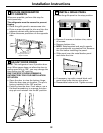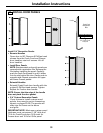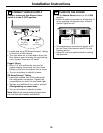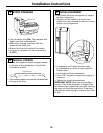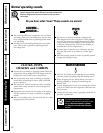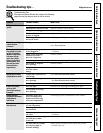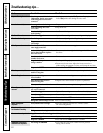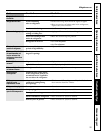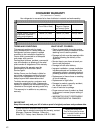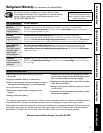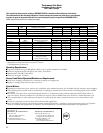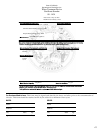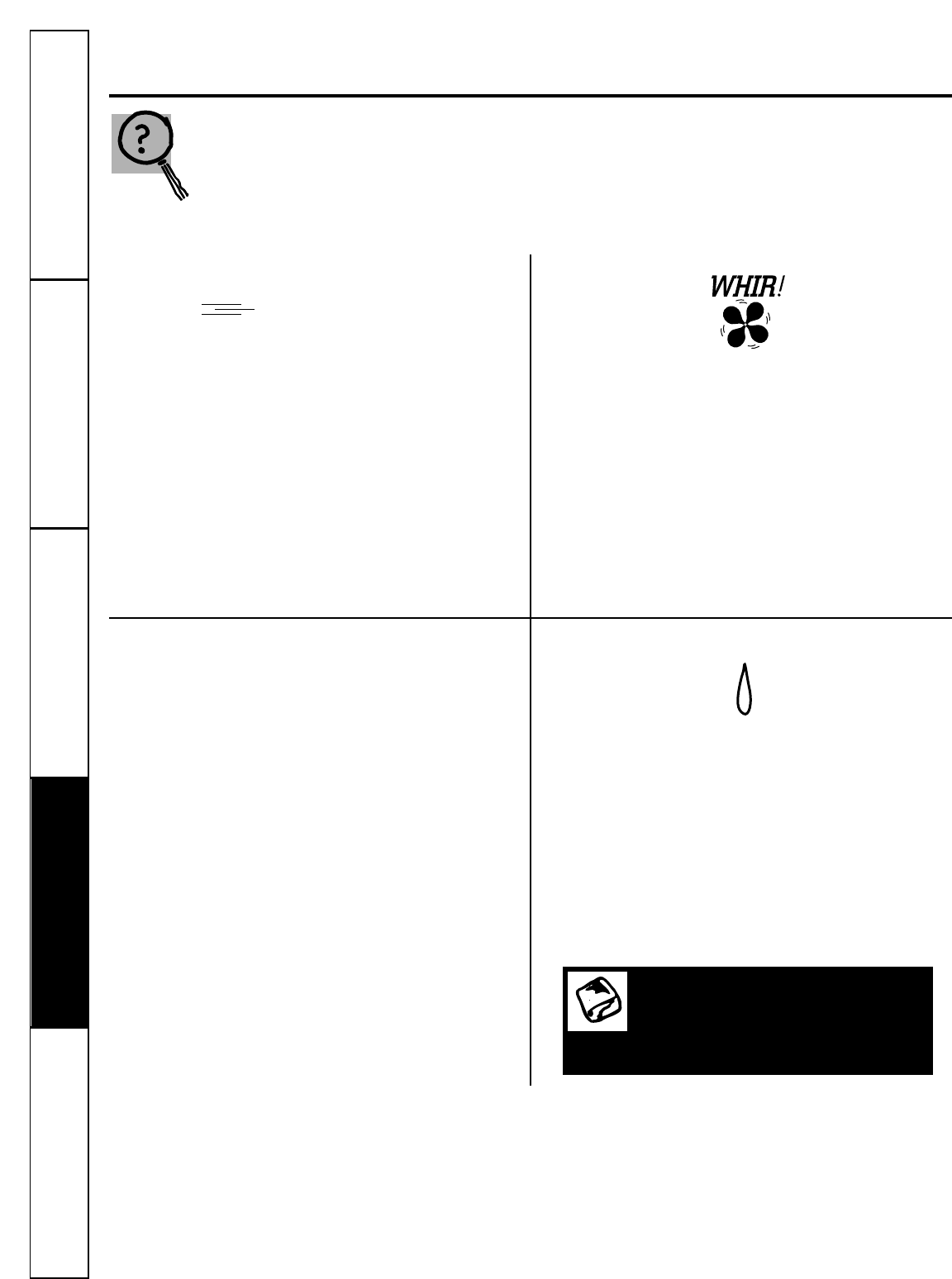
Consumer Support
Troubleshooting Tips Operating Instructions Safety InstructionsInstallation Instructions
36
Normal operating sounds.
Newer refrigerators sound different from older refrigerators.
Modern refrigerators have more features and use newer
technology.
HUMMM...
WHOOSH...
■
The new high efficiency compressor may run faster
and longer than your old refrigerator and you may
hear a high-pitched hum or pulsating sound while
it is operating.
■
You may hear a whooshing sound when the doors
close. This is due to pressure equalizing within
the refrigerator.
■
You may hear the fans spinning at high speeds.
This happens when the refrigerator is first plugged
in, when the doors are opened frequently or when
a large amount of food is added to the refrigerator
or freezer compartments. The fans are helping to
maintain the correct temperatures.
■
If either door is open for over 3 minutes, you may
hear the fans come on in order to cool the light
bulbs.
■
The fans change speeds in order to provide optimal
cooling and energy savings.
CLICKS, POPS,
CRACKS and CHIRPS
■
You may hear cracking or popping sounds when the
refrigerator is first plugged in. This happens as the
refrigerator cools to the correct temperature.
■
The compressor may cause a clicking or chirping
sound when attempting to restart (this could take
up to 5 minutes).
■
The electronic control board may cause a clicking
sound when relays activate to control refrigerator
components.
■
Expansion and contraction of cooling coils during
and after defrost can cause a cracking or popping
sound.
■
After an icemaking cycle, you may hear the ice cubes
dropping into the ice bucket.
WATER SOUNDS
■
The flow of refrigerant through the freezer cooling
coils may make a gurgling noise like boiling water.
■
Water dropping on the defrost heater can cause a
sizzling, popping or buzzing sound during the
defrost cycle.
■
A water dripping noise may occur during the defrost
cycle as ice melts from the evaporator and flows into
the drain pan.
■
Closing the door may cause a gurgling sound due to
pressure equalization.
Do you hear what I hear? These sounds are normal.
For additional information on normal
icemaker and dispenser operating sounds,
see the About the automatic icemaker
and About the ice and water dispenser
sections.



